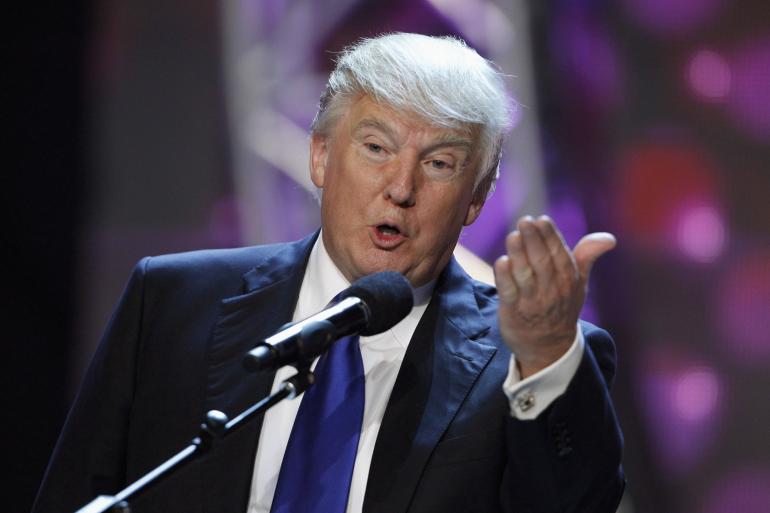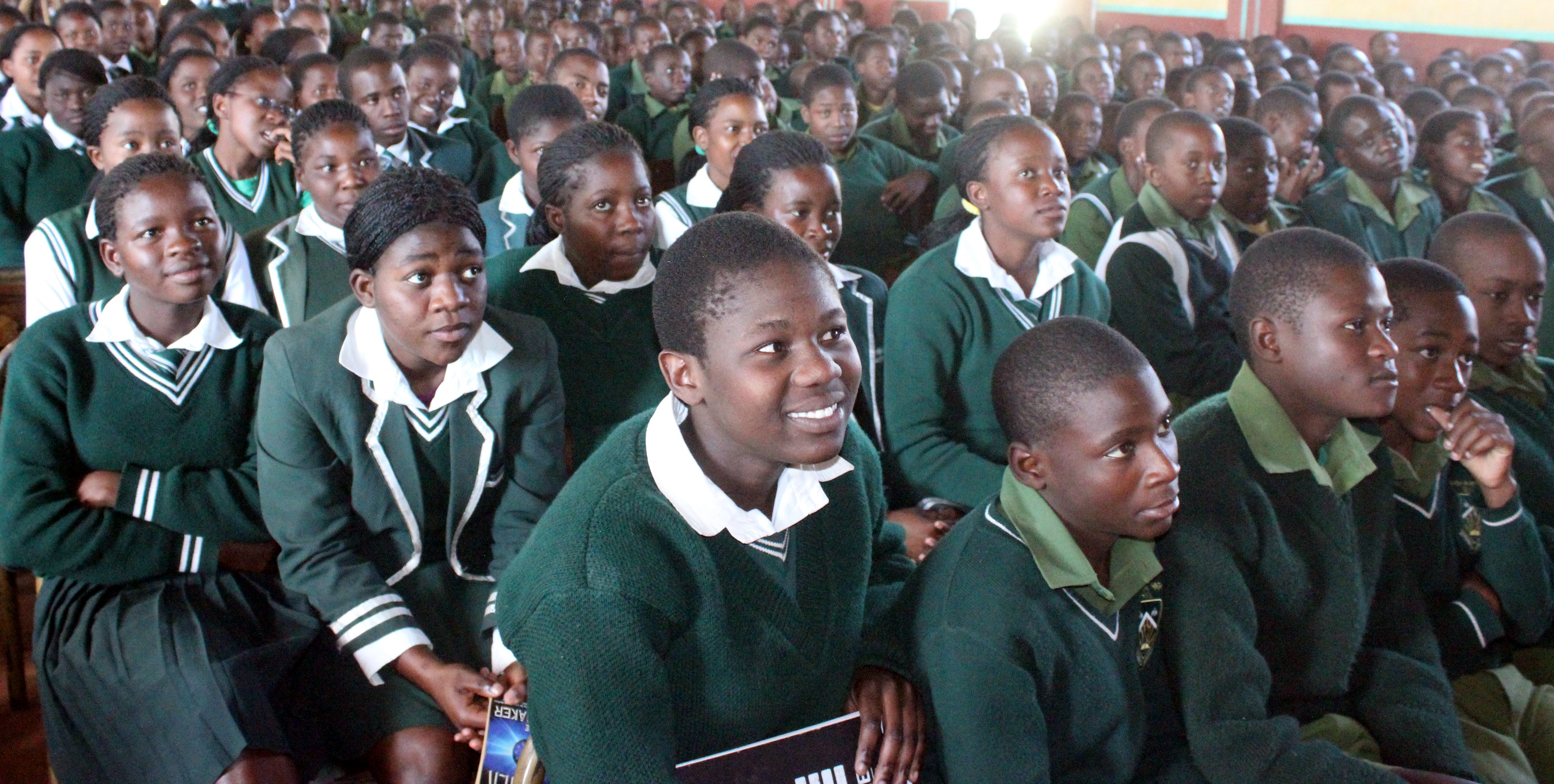Donald Trump has clinched nothing

William Saletan
Donald Trump’s South Carolina–New Hampshire double is being touted as a sure sign he’ll win the nomination. It’s not. His unfavourable rating among Republicans is the worst of any Republican candidate who remains in the race today. Trump will be the Republican nominee for president. That’s the prediction echoing across TV studios since Trump’s victory in South Carolina last Saturday. And what’s the basis for this inference? Precedent. As ABC’s George Stephanopoulos put it: “No Republican who’s won both New Hampshire and South Carolina has ever lost the nomination.”
That statement about second and third states on the GOP nominating calendar is true. In the last two days, it has permeated the Internet, spooking reporters into talk of a Trump coronation. But the magical power of these two states is a myth. It’s one of those patterns that looks decisive but turns out to be dubious. If you look more comprehensively at history and at current polling, it’s still way too early to call a Trump nomination inevitable.
The GOP didn’t hold a presidential primary in South Carolina until 1980 . In 1984 and 2004, with Republican presidents in office and seeking re-election, both states were uncontested. They were won by the sitting vice president in 1988 and by the incumbent president in 1992. In 1996, 2000, and 2012, the candidate who prevailed in New Hampshire didn’t win South Carolina. So in the last 35 years, there’s been only one open nomination contest in which the same Republican won both states. That was 2008.
The winner that year, Senator John McCain, went on to capture the nomination. But McCain’s position in surveys taken before and after the 2008 South Carolina primary was nothing like Trump’s current one. In a CNN poll conducted between January 14 and 17, 2008, just before that year’s South Carolina primary, 66 percent of Republicans said McCain had “the personality and leadership qualities a president should have.” Only 33 percent said he lacked those qualities.
Contrast that with Trump’s situation. In December 2015, a Monmouth University survey asked Republicans whether Trump had “the temperament needed to carry out the role of president.” At that point, 35 percent disagreed with that statement—not much worse than the 33 percent who had said in 2008 that McCain lacked “the personality and leadership qualities a president should have.” But the more people saw of Trump, the more they turned against him.
By January 2016, 45 percent of Republicans interviewed by CBS News and the New York Times rejected the proposition that Trump “has the right kind of temperament and personality to be a good president.” And by February, in a Fox News poll taken just before the South Carolina primary, 48 percent of Republicans disagreed with the statement that Trump “has the temperament to serve effectively as president.”
This difference between voters’ judgment of Trump’s personality and their judgment of McCain’s contributes to a broader difference in favourability. In an ABC News/Washington Post survey taken between January 9 and 12, 2008, a week before the vote in South Carolina, McCain registered a 77 percent favourable rating among Republicans. That was the highest score of any candidate tested.
A Pew poll conducted between January 9 and 13, 2008, found similar results: McCain led the field with a 71 percent favourable rating and only a 23 percent unfavourable rating . By the end of the month, the race had narrowed to three candidates, but McCain still posted the highest favourable rating (72 percent) and the lowest unfavourable (19 percent).
Trump’s standing is much weaker. His unfavourable rating among Republicans, as measured by a Quinnipiac poll shortly before South Carolina, was 31 percent —around 10 points higher than McCain’s. That’s also easily the worst score among the Republican candidates who remain in the race today.
The political effects of Trump’s unattractiveness, compared with McCain’s broad appeal, can be measured in two ways. The first is that Republican voters in 2016 are far less likely to embrace Trump as their second choice than Republican voters in 2008 were to embrace McCain. In the January 2008 ABC/Post survey, McCain didn’t just lead the horse race. He was also, among seven candidates listed as options, the most popular second choice of Republican voters.
In the field of Republicans running in 2016, however, Trump is the least popular. In a Suffolk University poll taken between February 11 and 15, only 9 percent of Republicans named Trump as their second choice. That was the lowest number among the six candidates listed, including Jeb Bush. Trump did slightly better in an NBC/Journal survey conducted between February 14 and 16, earning the second choices of 12 percent of Republicans. But that was still the worst performance among the five candidates who are still in the race today. In a February 15 to 17 Fox News poll, 11 percent of Republicans named Trump as their second choice, compared to 27 percent for Sen. Marco Rubio, and 20 percent for Sen. Ted Cruz.
But Trump’s bigger problem is that, unlike McCain, he has already lost the votes of too many Republicans, not just in the primaries but in the general election. McCain didn’t just have high levels of support within the party.
He also engendered the least resistance. In an NBC News/Wall Street Journal poll taken between January 20 and 22, 2008, just after his victory in South Carolina, 9 percent of Republicans said that if McCain were nominated, they wouldn’t vote for him in the general election. Another 12 percent said they would withhold judgment until the Democratic nominee was selected. On both of these measures, McCain posted the least negative scores among the five Republicans listed.
Trump’s numbers, according to four polls taken between this year’s New Hampshire and South Carolina primaries, are significantly worse. In the Suffolk poll, 17 percent of Republicans said that if Trump became the nominee, they would be “scared.” In a CBS/Times survey, 20 percent of Republicans said they wouldn’t support Trump as the nominee. In the Quinnipiac poll, 28 percent said they “would definitely not support (Trump) for the Republican nomination.” (By comparison, 17 percent ruled out Cruz, and 13 percent ruled out Rubio.) And in the NBC/Journal poll, 42 percent said they couldn’t imagine themselves “supporting (Trump) for the Republican nomination.” Only Jeb Bush was more broadly rejected.
Trump might well win the nomination. I’ve made the case, using other surveys, that his views are quite representative of today’s Republican voter. But if it happens, it won’t be because he pulled off a magic double in New Hampshire and South Carolina. The only other Republican who has won those two primaries back to back in the last 35 years, without already being president or vice president, went on to capture the nomination not because he was just like Trump, but because he wasn’t.
About the writer: William Saletan writes about politics, science, technology, and other stuff for Slate. He’s the author of Bearing Right.










Comments